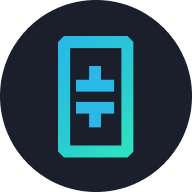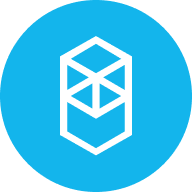
The Graph price
The Graph market info
Market cap = Circulating supply × Last price
The Graph price performance in HKD
Popular The Graph conversions
| GRT to USD | $0.20810 |
| GRT to PHP | ₱12.1156 |
| GRT to EUR | €0.20082 |
| GRT to IDR | Rp 3,361.33 |
| GRT to GBP | £0.16648 |
| GRT to CAD | $0.29758 |
| GRT to AED | AED 0.76373 |
| GRT to VND | ₫5,284.41 |
About The Graph (GRT)
- Official website
- White Paper
- Github
- Block explorer
GRT FAQ
The Graph protocol is the intermediary communication channel that sends verified blockchain data to decentralized applications. In addition, it handles data retrieval, mapping responses to smart contract transactions, and delivering organized data to end-users. The Graph also saves data and time for developers through its efficient data feeds. GRT is the name and ticker of the platform's native token.
The first step starts with scanning Ethereum blocks for new data using the Graph node. After scanning, the events are defined into subgraphs, and the Node is responsible for filtering events related to the user's queries. The high-quality subgraphs are then indexed by indexers and presented to the end-user using GraphQL. It acts as the main link between blockchain data and decentralized applications.
Easily buy GRT tokens on the OKX cryptocurrency platform. Available trading pairs in the OKX spot trading terminal include GRT/USDT, GRT/USDC, and GRT/BTC.
You can also buy GRT with over 99 fiat currencies by selecting the "Express buy" option. Other popular crypto tokens, such as Bitcoin (BTC), Ethereum (ETH), Tether (USDT), and USD Coin (USDC), are also available.
Swap your existing cryptocurrencies, including XRP (XRP), Cardano (ADA), Solana (SOL), and Chainlink (LINK), for GRT with zero fees and no price slippage by using OKX Convert.
To view the estimated real-time conversion prices between fiat currencies, such as the USD, EUR, GBP, and others, into GRT, visit the OKX Crypto Converter Calculator. OKX's high-liquidity crypto exchange ensures the best prices for your crypto purchases.
</where>Easily buy GRT tokens on the OKX cryptocurrency platform. Available trading pairs in the OKX spot trading terminal include GRT/USDT, GRT/USDC, and GRT/BTC.
You can also buy GRT with over 99 fiat currencies by selecting the "Express buy" option. Other popular crypto tokens, such as Bitcoin (BTC), Ethereum (ETH), Tether (USDT), and USD Coin (USDC), are also available.
Swap your existing cryptocurrencies, including XRP (XRP), Cardano (ADA), Solana (SOL), and Chainlink (LINK), for GRT with zero fees and no price slippage by using OKX Convert.
To view the estimated real-time conversion prices between fiat currencies, such as the USD, EUR, GBP, and others, into GRT, visit the OKX Crypto Converter Calculator. OKX's high-liquidity crypto exchange ensures the best prices for your crypto purchases.


















